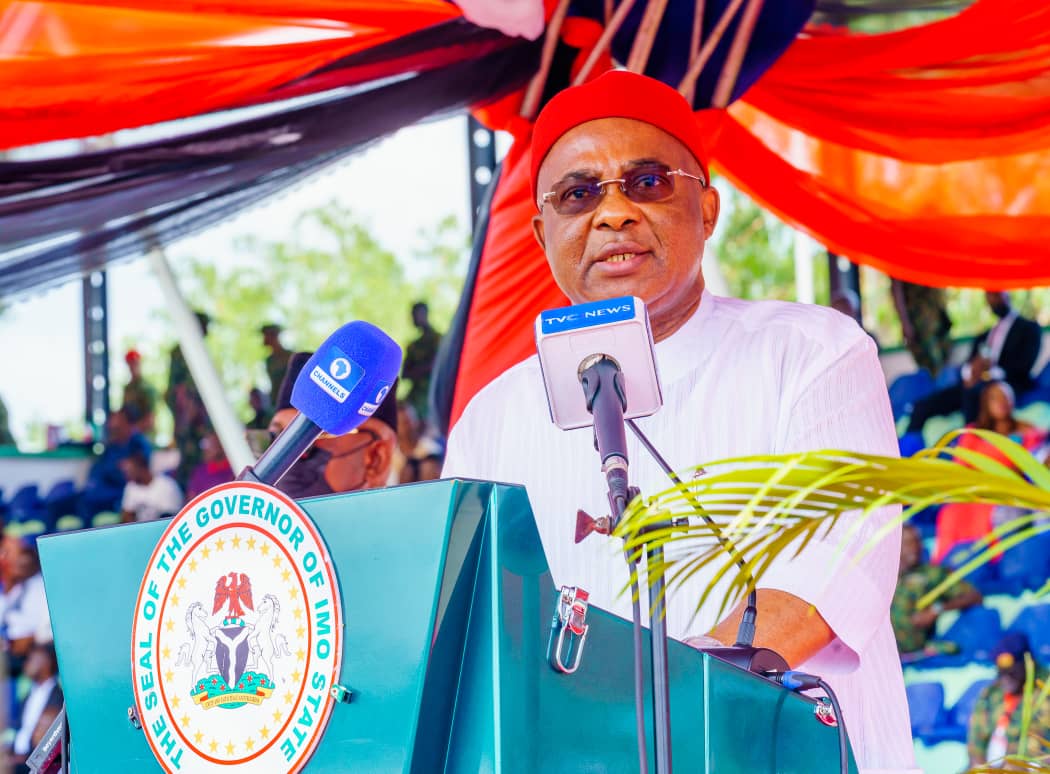To create jobs and shore up its economy, the Imo State government plans to revive the state’s moribund agriculture sector. OKODILI NDIDI reports
Not too many people know that aside from its enormous mineral resources, Imo State has huge untapped agricultural potentials that when harnessed will transform it to a leading exporter of agricultural produce.
But painfully, successive administrations in the state failed to take advantage of these agricultural resources to create jobs and attain food security in the state. Instead, the state government has continued to rely on the 13% derivation from the Federation Account as an oil producing state, leaving these potentials to idle away.
For instance, unconfirmed reports put the state ahead of Anambra and Enugu states in the cultivation of cashew which is allowed to waste away but for a handful of peasants who process the nuts for the local market.
A cashew plantation that spans hectares of land along the Njaba-Orlu Road in Njaba Council Area of the state, which was planted during the administration of Sam Mbakwe, has been abandoned. The same applies to the Imo Rubber Estate and the Imo Palm Plantation located in Ohaji-Egbema.
Although attempts were made by the Rochas Okorocha administration to return the state to agriculture through various policies and programmes, none of these were enough to activate the much needed revolution in the agricultural sector in the state.
If properly harnessed the cashew plantation can attract foreign exchange for the state through export and direct foreign investments, as well as create meaningful jobs for the teeming youths in the state.
The Imo Rubber Estate is another abandoned goldmine that is capable of creating jobs and becoming a major revenue earner for the state.
Established during the reign of Michael Opara as the Premier of the Eastern Region, the Imo Rubber Estate was conceived as a farm settlement with a flouring estate. During its heydays, it was the largest single rubber plantation in the Eastern Region and created wealth and job opportunities for the people.
Despite the fact that the rubber plantation has been and some of the trees destroyed either by age or climate conditions, no remarkable efforts have been made by successive governments to replant or expand the plantation.
The Estates which were built in three major rubber plantations in Ngor-Okpala, Ohaji-Egbema and Owerri West Council Areas are now weather beaten and totally abandoned.
This also applies to the Imo Palm Plantation, which was also established by Michael Opara. Spanning hundreds of Hectares of land, the Imo Palm Plantation is about the third largest single palm plantation in Nigeria and was once the mainstay of the economy of the old Imo State.
However, despite the prospects, the Oil Palm plantation was grossly mismanaged over the years, resulting in endless clashes between the Management and the host community.
Meanwhile, if properly harnessed, Imo State will become a major exporter of palm oil and other by products that are derived from oil palm.
At last there is something to cheer; the Imo State government is set to revive and rejuvenate the agricultural sector and once more make it the mainstay of the economy of the state.
By implication, the ailing agro-industries in the state will receive the required attention, which will no doubt unlock the hidden agricultural potentials of the state.
Disclosing the plans of the state government, the Special Adviser to the Governor on Agriculture, Uche Udeozor, stated that the state governor, Emeka Ihedioha is committed to accelerated agricultural development.
According to him, “the state government is committed to revamping agriculture and pull over 60% of the people of the state out of poverty by making the required investments in agriculture”.
He however lamented that over N30 billion budgeted for agriculture in the last six years was never invested in the sector.
Also assuring of better deal for the agricultural sector, a member of the newly constituted Board of the Imo Rubber Estate, Chief
Fidel Onyeneke, said that the current administration is poised to returning the pride of agriculture in the state.
He noted that the Imo Rubber Estate when revived will create no fewer than 200 jobs, adding that, “the current administration is committed to diversifying the economy of the state by making huge investment in the agricultural sector. All the abandoned agro-industries like the Imo Palm, Imo Rubber Estate, Avutu Poultry, among others that where hitherto abandoned will get the required attention”.
THE NATION






